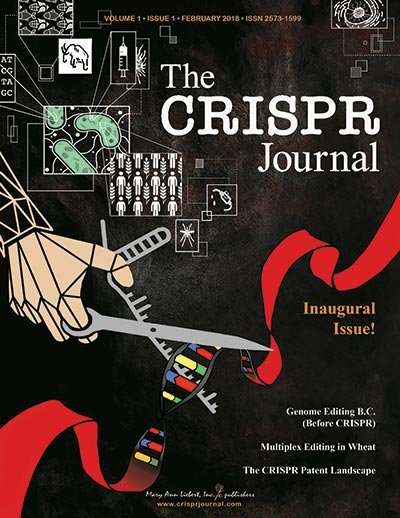Credit: Mary Ann Liebert, Inc., publishers
Designed to improve the utility and availability of increasingly diverse CRISPR-Cas genome editing systems, the new CRISPRdisco automated pipeline helps researchers identify CRISPR repeats and cas genes in genome assemblies. The freely available software provides standardized, high throughput analytical methods that detect CRISPR repeats and accurately assign class, type, and subtypes, as described in an article published in The CRISPR Journal.
CRISPR discovery (CRISPRdisco) originated in the North Carolina State University laboratory of Rodolphe Barrangou, PhD, Editor-in-Chief of The CRISPR Journal. Dr. Barrangou and colleagues Alexandra Crawley, NC State University, Raleigh and James Henriksen, AgBiome, Durham, NC, coauthored the article entitled "CRISPRdisco: An Automated Pipeline for the Discovery and Analysis of CRISPR-Cas Systems."
In this study, the researchers used CRISPRdisco to identify and classify possible CRISPR-Cas systems in 2,777 complete genomes from the NCBI RefSeq database. They emphasized the importance of being able to distinguish between complete and incomplete CRISPR systems and to determine the link between potentially complete and functional CRISPR-Cas systems in vivo and CRISPR-Cas diversity in silico. Importantly, this platform is readily available to all via GitHub and enables novices to mine for and characterize CRISPR-Cas systems in various genomic datasets.
"New bioinformatics tools, programs, and databases are helping to drive the CRISPR revolution and we're happy to provide a forum for the validation of some of these important platforms," says Kevin Davies, PhD, Executive Editor of The CRISPR Journal.
More information: Alexandra B. Crawley et al, CRISPRdisco: An Automated Pipeline for the Discovery and Analysis of CRISPR-Cas Systems, The CRISPR Journal (2018). DOI: 10.1089/crispr.2017.0022
Provided by Mary Ann Liebert, Inc






















